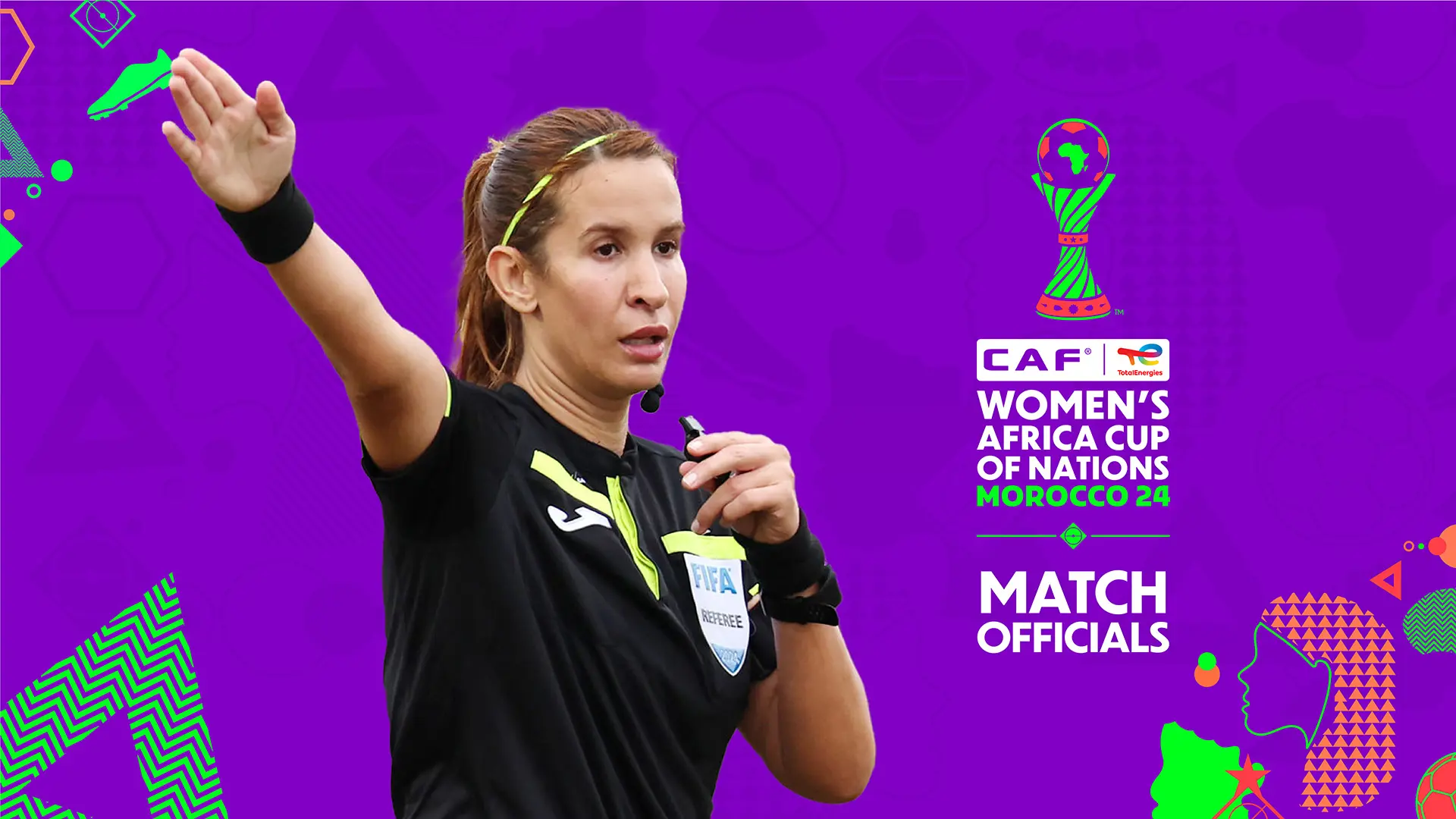Morocco to be represented by four referees at 2024 Women’s Africa Cup of Nations

Four Moroccan referees have been appointed by the Confederation of African Football (CAF) to officiate at the 2024 Women’s Africa Cup of Nations, set to take place on home soil from 5 to 26 July.
Bouchra Karboubi, one of the continent’s most recognised female referees, has been named among the 18 central officials selected for the tournament.
Karboubi’s inclusion continues her impressive run on the international stage, having previously taken charge of matches at the 2023 Men’s Africa Cup of Nations in Côte d’Ivoire and being selected for the 2024 Olympic Games in Paris.
Joining Karboubi in the central refereeing pool is her compatriot Sabah Sadir, as CAF confirmed in its latest announcement on tournament preparations.
The Moroccan duo will be part of a larger group of elite African officials expected to uphold the highest standards of officiating during the competition.
Morocco’s representation also extends to the assistant referees’ list, where Fathia Jermoumi and Ishsane Nouajli have been named.
Both officials bring valuable experience and are no strangers to CAF competitions, having contributed to various high-stakes matches in recent years.
The appointment of four Moroccan officials reflects the country’s growing prominence in African football, particularly in hosting and contributing to the development of the women’s game.
With the 2024 edition being held in Morocco, the selection of homegrown referees adds further significance to the event.
In total, CAF has assembled a record 46 match officials for the tournament, surpassing the 40 selected for the 2022 edition.
The list includes 18 central referees, 18 assistant referees, and 10 video assistant referees (VARs), ensuring comprehensive coverage across all fixtures.
“This is a tournament of immense importance, and we have selected the very best officials from across the continent,” CAF stated in its press release.
The record number of appointments reflects both the rising stature of the Women’s Africa Cup of Nations and CAF’s commitment to elevating officiating standards through inclusion, performance, and investment in talent.
As Morocco prepares to welcome the continent’s top female footballers, its referees will also take centre stage, tasked with maintaining the integrity and flow of the competition from the opening whistle to the final.






